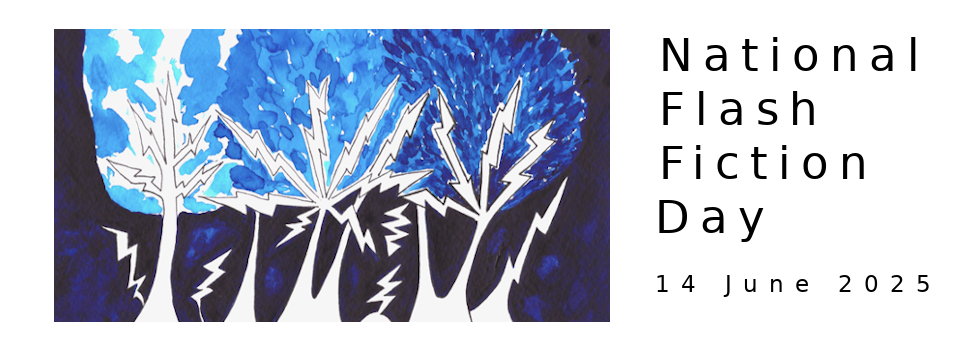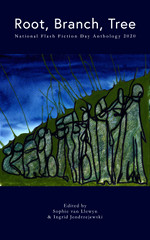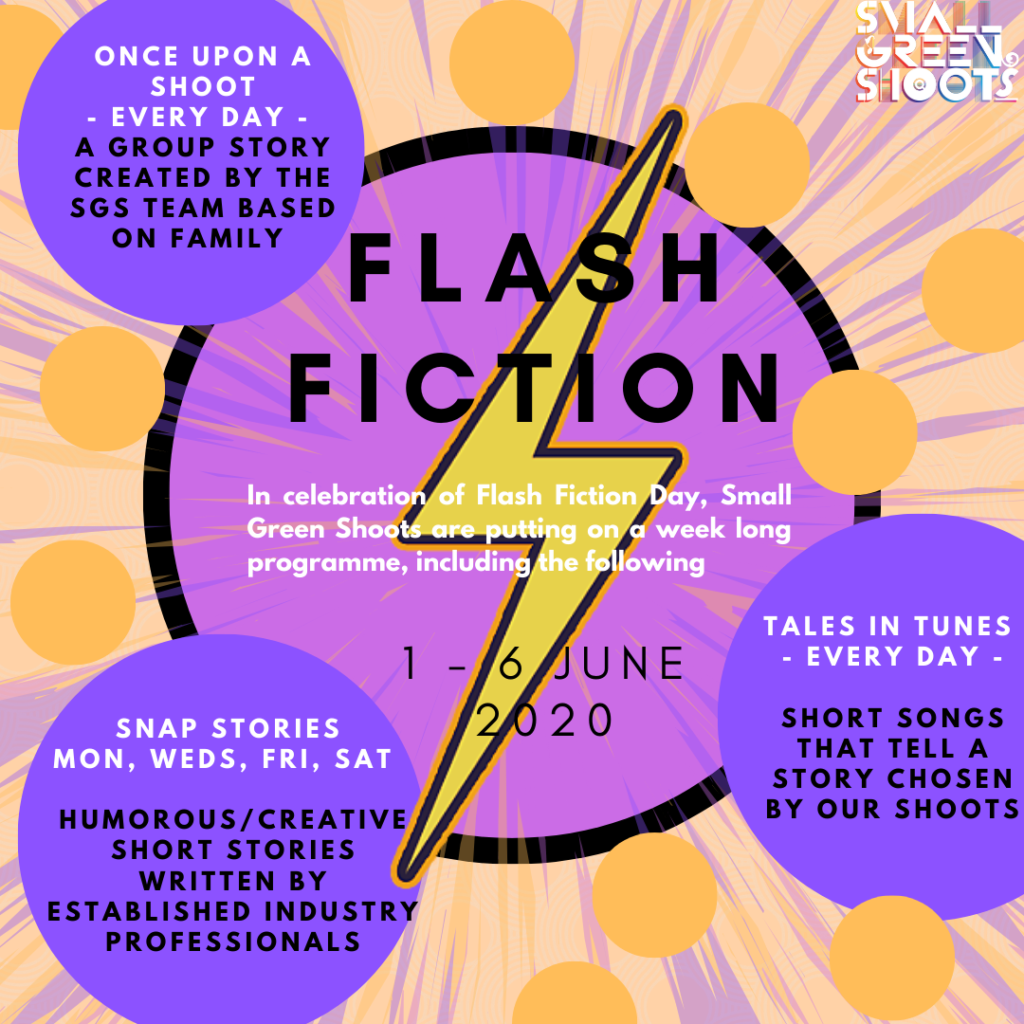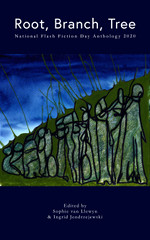Last year, at our 2019 National Flash Fiction Day event in Coventry, we shared some flash written on the theme of 'epiphany' by men at HMP Wandsworth who were participants of Safe Ground's Flash Fiction Project workshops. We've published these over at our online journal, FlashFlood as part of our Safe Ground series. We'd like to revisit these stories this year as part of our online celebration of flash fiction in the UK.
You can find all fourteen of these stories on FlashFlood here.
We now welcome Safe Ground Programmes Manager Lindsay Murphy who tells us a bit about the background and philosophy of Safe Ground's Flash Fiction Project...
 Safe Ground is a national arts organisation delivering high quality services and interventions in both prison and community settings. Our programmes focus on relationships and identity and use group work and creative techniques for participants to experience alternative perspectives, develop empathy and self-awareness alongside skills and competencies. We challenge people and communities to do relationships differently.
Safe Ground is a national arts organisation delivering high quality services and interventions in both prison and community settings. Our programmes focus on relationships and identity and use group work and creative techniques for participants to experience alternative perspectives, develop empathy and self-awareness alongside skills and competencies. We challenge people and communities to do relationships differently.
As an arts organisation, Safe Ground relies on the use of artistic practices and techniques to inform and support our programme design, delivery and evaluation. Our methodologies promote reflection, realisation and revelations. They provide participants with platforms for change and routes into transitions. Throughout our programmes moments of clarity can occur, awareness and understanding of situations can be enhanced and participants can find themselves with a renewed sense of the self. Often, participants in our programmes begin or develop skills in performance, drama and creative writing.
Part of our organisational ethos has always been to work in partnership wherever possible and appropriate. Since 2015, Safe Ground is proud to have been in a relationship with Essex University and in 2017 we coordinated a creative writing workshop with the men at HMP Wandsworth.
It was agreed that ‘Epiphany’ was appropriate as a narrative theme, to support the groups to explore moments of change and transformation, which are inherent in the work we do. These epiphanies or turning points can provide moments of clarity but can also bring up an array of issues, dilemmas, decisions to be made and pathways to be pursued. Over two, two-day workshops, a total of 12 men participated and each produced a selection of short stories for submission. Participants ranged in age from 23 to 65 and brought with them a vast diversity of cultural, educational and life experience. The flash fiction pieces produced by participants denote an array of lightbulb moments, of points of sharp realisation, of transparency and revelation.
Our colleague and design partner on this project was Jonathan Crane who writes:
“When the opportunity to work with Safe Ground in the design and delivery of a creative writing workshop for HMP Wandsworth arose, I was studying towards a Ph.D. at the University of Essex. At that time, I had just been researching the concept of ‘Epiphany’ in relation to short stories, and exploring the flash fiction form. To my mind, these elements seemed ideally suited for a creative writing project in a prison setting.
Flash fiction, I felt, could provide the participants with a short, accessible form with which they could experiment. Then, with the concept of epiphany as a central theme for the workshops, the men could be encouraged to reflect on their own experiences, as well as to explore their own realizations and transformations. Yet, more than this, by introducing the idea of epiphany as a focal point of change within a narrative, we could provide a structure which would help the men shape their own flash fiction.
Using Safe Ground’s methodologies, the workshops provided a supportive forum not only for discussion, and for the expression of ideas and experiences, but also for the sharing of work. We encouraged the men to read out their work, and to give constructive feedback on the work of others. This process then fed into a session on editing and drafting stories during which the men worked collaboratively.
When I began this project, I had hoped to share some writing technique with the participants, and to introduce them to a form which might enable their self-expression. In short, I wanted to help them to write, and to have their voices heard. I little knew that the men would embrace flash fiction so keenly and create stories which ranged from the minimalist dramatic short, to the lyrical prose poem, from the poignantly personal to the surreally comic.
It was a privilege and a pleasure to work with Safe Ground and the men in HMP Wandsworth. The men’s eloquence and honesty, their openness to discuss their experiences and insights, as well as to share their stories, not only dismantled my own preconceptions about prison and life therein, but also taught me to appreciate the small things that we so casually take for granted.
---
You can follow Safe Ground on Twitter @Safe_Ground.
 Nik Perring is a short story writer and the author of five books. His work has appeared in many fine places all over the world including Smokelong, Word Riot, 3 :AM Magazine, and The Fiction Desk. His re-telling Little Red Riding Hood, Carmine’s Fruit, won the Artificum Short Story Prize. It’s also been read on the radio, performed on the stage, printed on fliers and appeared, with Dave Eggars’, on a High School Distance Learning course in the US.
Nik Perring is a short story writer and the author of five books. His work has appeared in many fine places all over the world including Smokelong, Word Riot, 3 :AM Magazine, and The Fiction Desk. His re-telling Little Red Riding Hood, Carmine’s Fruit, won the Artificum Short Story Prize. It’s also been read on the radio, performed on the stage, printed on fliers and appeared, with Dave Eggars’, on a High School Distance Learning course in the US.






 Join us from 7 – 10 pm BST for the virtual launch of the 2020 NFFD Anthology, Root, Branch, Tree.
Join us from 7 – 10 pm BST for the virtual launch of the 2020 NFFD Anthology, Root, Branch, Tree.
 Jonathan Cardew is a contributing editor for Best Microfiction and blog editor/ workshop leader for Bending Genres. His flash fiction appears or is forthcoming in SmokeLong Quarterly, wigleaf, Passages North, Atticus Review, Craft Literary, Superstition Review, and others. Originally from the UK, he lives in Milwaukee, Wisconsin.
Jonathan Cardew is a contributing editor for Best Microfiction and blog editor/ workshop leader for Bending Genres. His flash fiction appears or is forthcoming in SmokeLong Quarterly, wigleaf, Passages North, Atticus Review, Craft Literary, Superstition Review, and others. Originally from the UK, he lives in Milwaukee, Wisconsin. We're gearing up for our virtual launch of the 2020 NFFD Anthology tomorrow, but in the meantime, here's a sneak peak at the beautiful cover featuring art by our artist-in-residence, Jeanette Sheppard.
We're gearing up for our virtual launch of the 2020 NFFD Anthology tomorrow, but in the meantime, here's a sneak peak at the beautiful cover featuring art by our artist-in-residence, Jeanette Sheppard.